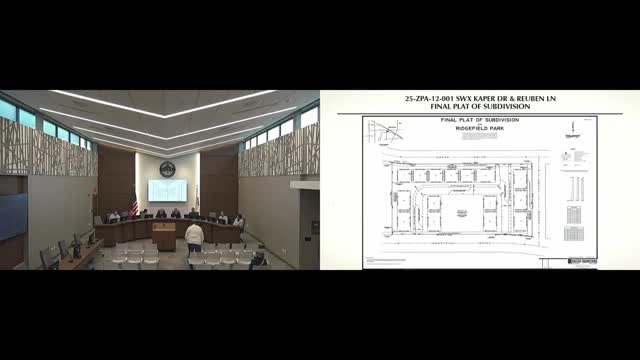ZPA receives zoning and public‑hearing training emphasizing standards, findings and public process
Get AI-powered insights, summaries, and transcripts
Subscribe
Summary
Members of the Village of Cary Zoning, Planning and Appeals received training on the legal basis for zoning, distinctions among map/text amendments, conditional uses and variations, and on public‑hearing procedures and findings of fact.
Members of the Village of Cary Zoning, Planning and Appeals board received an extended training session on zoning authority, procedures and best practices, focused on the standards required for map and text amendments, conditional uses, and variations and on how to structure robust public hearings and findings of fact.
Guest instructor Mr. Euler reviewed the legal foundation for local zoning authority, noting it derives from the Illinois General Assembly and emphasizing that zoning decisions must be supported by facts and by the Unified Development Ordinance (UDO). "Your authority to do this...comes strictly from the Illinois General Assembly," Euler said, and he explained courts consider existing land uses and surrounding zoning as primary factors in rezoning challenges.
The presentation clarified differences among three common forms of relief: map or text amendments (which change zoning classifications or the code text), conditional uses (allowed uses that require review and can carry conditions), and variations (requests to deviate from the UDO where the petitioner must meet specific, stricter standards). Euler noted that a variation requires affirmative votes from at least four ZPA members to recommend approval and that a negative recommendation raises the trustees' threshold for approval.
On public hearings, the instructor emphasized that hearings are evidence-gathering proceedings distinct from general public-comment sessions; hearing rules must allow reasonable time for interested parties to present testimony and cross-examination when necessary. He cautioned against using out-of-record information (for example, a property tax dispute unrelated to the zoning criteria) in decision making and warned that purely aesthetic objections are weak unless the code includes objective design standards.
Staff and board members discussed training opportunities. Brian Simmons said petitions typically include written responses to UDO standards and that staff assists applicants in preparing materials as needed. Village staff offered to cover the cost of state planning-conference training for interested board members and to pursue joint trainings with neighboring communities. "If that's something that any member's interested in participating in, certainly is an opportunity that's there that the village would pay for the cost to attend," Brian Simmons said.
Why it matters: The training reiterated legal standards that guide how the ZPA collects evidence, asks questions of applicants, frames findings of fact and prepares recommendations for the Board of Trustees. Those practices affect the legal defensibility of zoning decisions and the fairness of the public-hearing process.
No formal zoning decisions were made during the training segment; it was educational and procedural, but staff and members identified follow-ups including scheduling additional training and coordinating attendance at the Illinois chapter of the American Planning Association conference.
